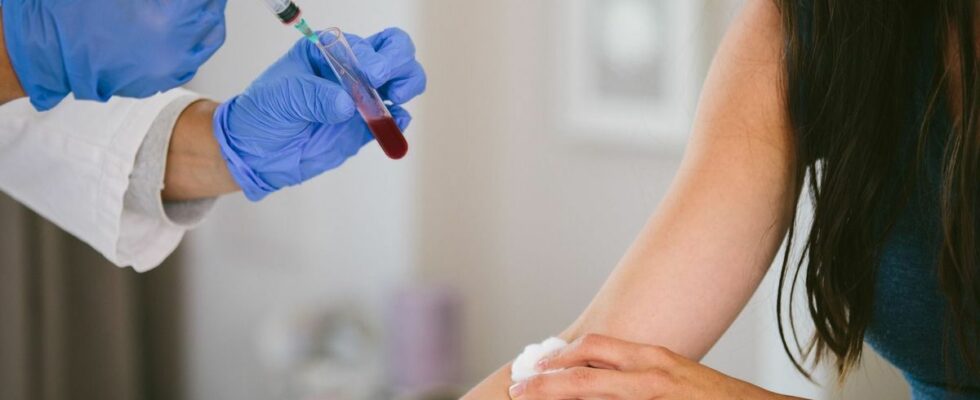Published on
updated on
Reading 3 min.
Since September 1, young people have been able to get free, no-prescription testing for four major sexually transmitted infections (STIs). This initiative aims to effectively combat the spread of hepatitis B, syphilis, chlamydia and gonorrhoea, infections that have been on the rise in recent years.
Since September 1, all young people under 26 living in France can benefit from free, no-prescription screening for four STIs (hepatitis B, syphilis, chlamydia and gonorrhea) in medical biology laboratories and screening and prevention centers. This new measure is in addition to free condoms for this same age group.
A boom in STIs that is causing concern
In 2021, more than 160,000 new cases of chlamydia were recorded, while cases of gonorrhea have almost doubled in 5 years. Similarly, syphilis is experiencing a worrying resurgence, particularly among young people. Hepatitis B, although less common thanks to vaccination, remains a major public health concern.
Free screening without prescription: instructions for use
From September, anyone under 26 will be able to come to the laboratory to be tested, without having to see a doctor, gynecologist or midwife. Upon arrival, they will have to fill out a questionnaire – mainly about their symptoms, sexual practices and vaccinations. The results will allow “the medical biologist to direct the patient towards the most relevant screenings and the most suitable self-sampling methods, with regard to their sexual practices and in accordance with scientific recommendations“.
If the test is positive, the medical biologist will see or call the patient to refer them to the appropriate care facility.
For minors who do not have the consent of a holder of parental authority, they will be redirected to a free information, screening and diagnostic center.
Facilitating access to care: a crucial issue
This initiative is part of a comprehensive approach to prevention and awareness of sexual health. It helps to remove barriers to prevention, by enabling more young people to know their status and receive treatment quickly if necessary.
Simplified access to screening is crucial for early detection and rapid treatment of STIs. Young people, who are particularly vulnerable, represent an age group where prevention must be strengthened. By eliminating the cost and the need for a prescription, this measure aims to reduce inequalities in access to care and improve the sexual health of the population.
The introduction of free, non-prescription testing for young people could inspire other countries to adopt similar measures, thereby contributing to better global sexual health.
Dr. Gérald Kierzek, emergency physician and medical director of Doctissimo, reminds us of the right reflexes to take when taking risks, whatever your age.
First, it is imperative to act quickly after a risky relationship. Some interventions have a limited window of action:
- For HIV, post-exposure treatment (PET) can be administered within 48 hours (72 hours maximum) and ideally within 4 hours after the risky intercourse;
- To avoid unwanted pregnancy, emergency contraception must be taken promptly also within 3 days or 5 days depending on the medication used;
- Check vaccination status (hepatitis B, etc.).
In case of risk, you can contact:
- A doctor;
- A center specializing in STIs (like CEGGID – whose list is available online) ;
- A family planning center;
- A specialized association;
- An emergency department (only hospital emergency departments are authorized to prescribe and deliver HIV post-exposure treatment).
These professionals will be able to assess the risks and recommend appropriate actions. Ideally, go there with your partner.
It is important to get tested regularly if you have unprotected sex. Screening allows for early diagnosis and treatment of STIs, thus limiting their spread and potential complications. There are even TROD (Rapid Diagnostic Orientation Test) screening kits available in pharmacies, or even self-tests that you can do yourself.
If an STI is diagnosed, it will be necessary to:
- Follow the prescribed treatment scrupulously, without interrupting it (particularly antibiotics)
- Do not self-medicate
- Continue to use condoms during treatment
- Inform your partner(s) so that they can also get tested and treated if necessary
“After an episode of STI, it is crucial to continue to protect yourself during sexual intercourse. With the exception of certain strains of papillomavirus and hepatitis A and B, there is no vaccine against most STIs. For men who have sex with other men, PrEP (preventive triple therapy) may be offered” adds Dr. Kierzek.
